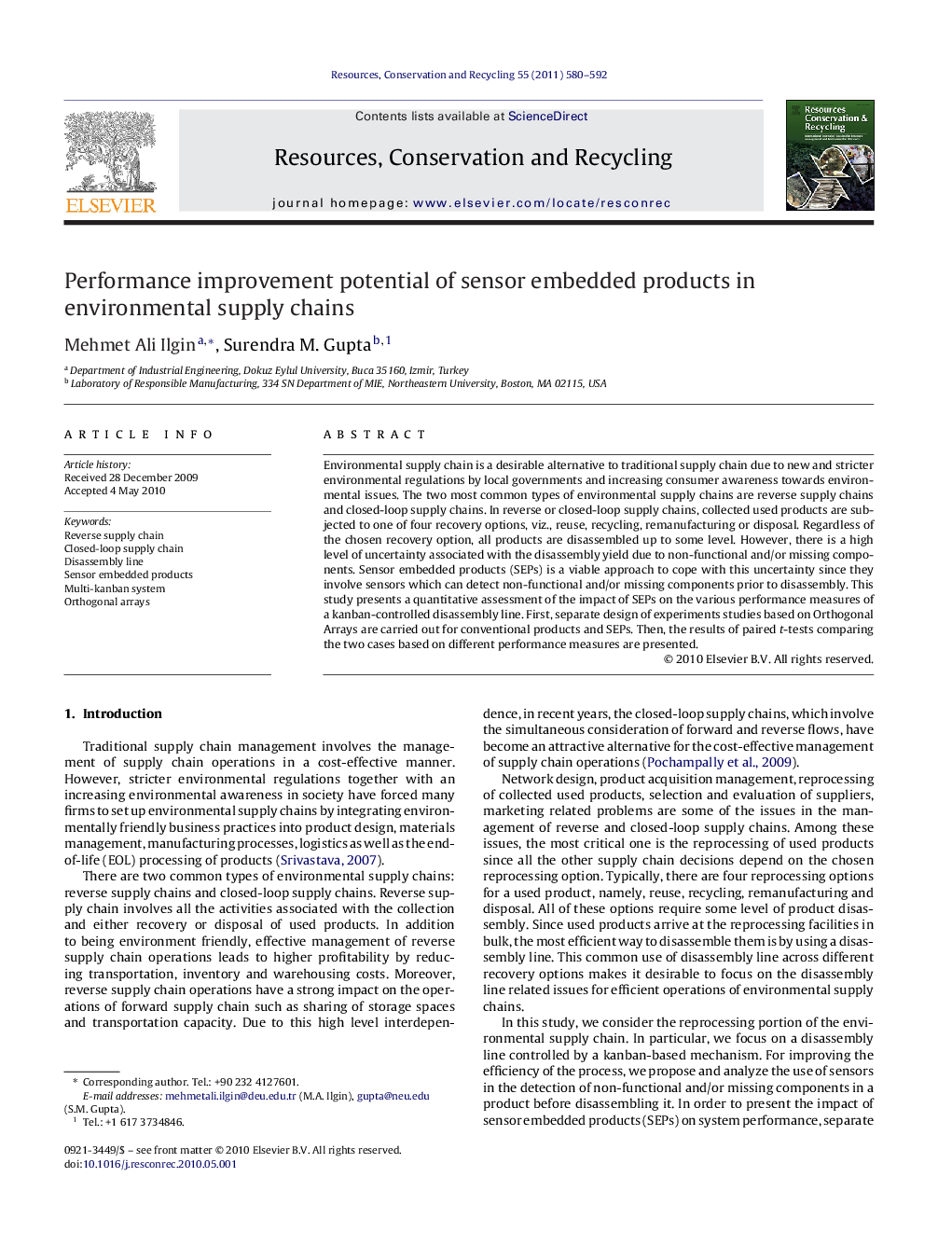| Article ID | Journal | Published Year | Pages | File Type |
|---|---|---|---|---|
| 1063386 | Resources, Conservation and Recycling | 2011 | 13 Pages |
Environmental supply chain is a desirable alternative to traditional supply chain due to new and stricter environmental regulations by local governments and increasing consumer awareness towards environmental issues. The two most common types of environmental supply chains are reverse supply chains and closed-loop supply chains. In reverse or closed-loop supply chains, collected used products are subjected to one of four recovery options, viz., reuse, recycling, remanufacturing or disposal. Regardless of the chosen recovery option, all products are disassembled up to some level. However, there is a high level of uncertainty associated with the disassembly yield due to non-functional and/or missing components. Sensor embedded products (SEPs) is a viable approach to cope with this uncertainty since they involve sensors which can detect non-functional and/or missing components prior to disassembly. This study presents a quantitative assessment of the impact of SEPs on the various performance measures of a kanban-controlled disassembly line. First, separate design of experiments studies based on Orthogonal Arrays are carried out for conventional products and SEPs. Then, the results of paired t-tests comparing the two cases based on different performance measures are presented.
